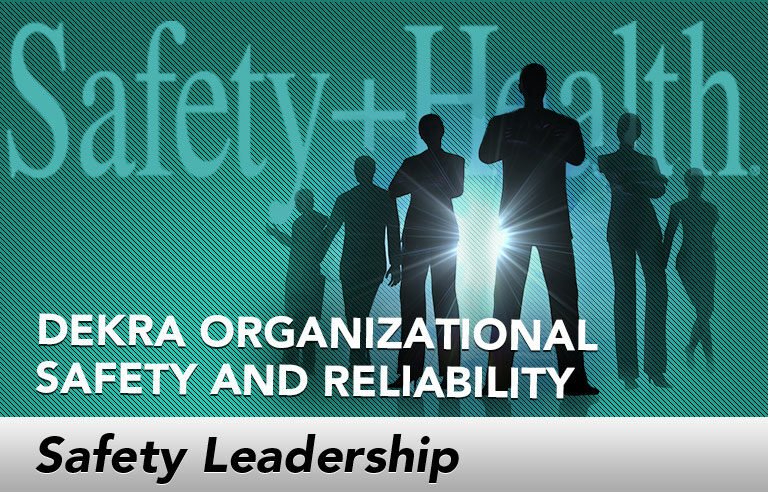Safety Leadership: Seizing moments of transformation in safety: Changing the culture by changing the experience

Editor’s Note: Achieving and sustaining an injury-free workplace demands strong leadership. In this monthly column, experts from global consulting firm DEKRA Insight share their point of view on what leaders need to know to guide their organizations to safety excellence.
If you want to change the culture, you have to change the experience. Distilled to its essence, culture is the outcome of collective experience. Dozens of everyday actions reinforce beliefs about what is “right” and what is expected – even when what is “right” or expected means that people are placed at risk of injury.
Every time leaders engage employees, they create experience. Often, their actions reinforce existing beliefs. But what if leaders could create interactions in which the employee engages in the same activities and actions as before, but leaves the situation with insight that challenges their beliefs about what is “right” or expected? This is what we call a moment of transformation.
Transformational leadership
Moving the culture forward requires a transformational approach to leadership – one that influences, inspires, engages and challenges people around safety. Take the following scenario, for example:
You walk up on a two-person job and see no imminent danger or threats. The work area is well-kept with no obvious hazards. A hole has been barricaded off so an unsuspecting person would not walk into it. The equipment is de-energized and you see two locks hanging on the lockout device. One employee has the required personal protective equipment, but the second doesn’t.
Here’s how to make this a moment of transformation:
- Talk about the significant exposures (equipment operating unexpectedly and the barricaded hole) and the “right” and expected steps the employees took to control them. Highlight the seriousness of these exposures and compliment the employees’ actions. Instilling pride in others’ achievements is part of the transformational leadership element “influencing”: acting in ways that build respect, trust and admiration. We change people’s experience around safety when we emphasize what they have done right and encourage their commitment beyond self-interest. This might by itself be transformational, if reinforcing desired actions is not the norm.
- Compliment the employees on the state of their work area and talk about the importance of housekeeping. Articulating a compelling vision and talking optimistically are part of the transformational element “inspiring”: painting a picture about where the organization is going and helping people see their role in that future. Expressing confidence in others’ ability to achieve goals transforms their safety experience and connects them to the larger mission.
- Encourage the employees to talk about safety opportunities they missed. Ideally they would mention PPE. If not, point out that it’s everyone’s job to ensure co-workers are properly protected. This is a chance to practice the transformational element “engaging”: coaching people to be successful. When workers allow the job to continue despite PPE oversight, it means the culture isn’t strong enough to support safety communication between employees.
- Invite the employees to change their own experience around safety. Ask for their commitment to talk to one another when they are working at risk. Encourage them to find new ways to accomplish tasks safely. This is the “challenging” element of transformational leadership.
Creating indelible change
Actions create experience, experience sets beliefs – and group beliefs define the culture. Every employee should leave the moment of safety transformation with a deeper respect for the leader. They should have a clearer understanding of how they personally contributed to the situation, what they could have done to change it, and what is expected going forward. Finally, they have a shared vision about why the change they are being asked to make is important to them, the leader and the organization.

Donald R. Groover is a senior vice president at DEKRA Insight, a global consulting, testing and advisory firm. Certified in safety and industrial hygiene, Groover helps leaders create high-performing cultures.
Post a comment to this article
Safety+Health welcomes comments that promote respectful dialogue. Please stay on topic. Comments that contain personal attacks, profanity or abusive language – or those aggressively promoting products or services – will be removed. We reserve the right to determine which comments violate our comment policy. (Anonymous comments are welcome; merely skip the “name” field in the comment box. An email address is required but will not be included with your comment.)

